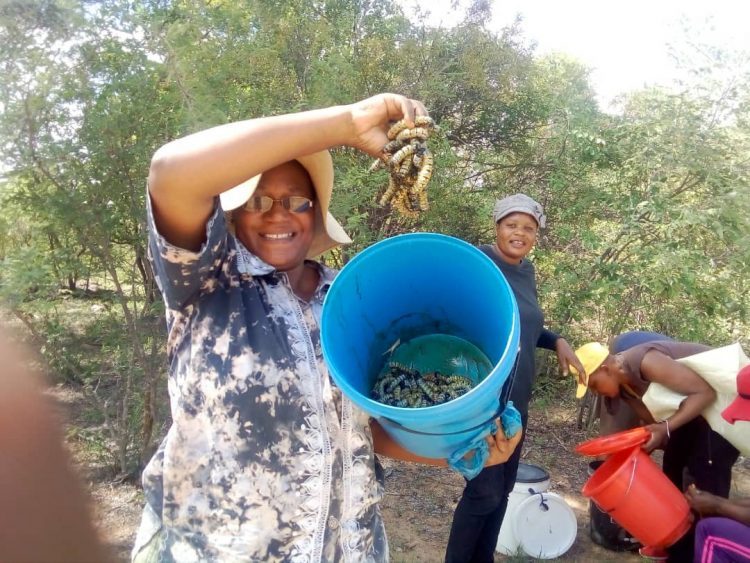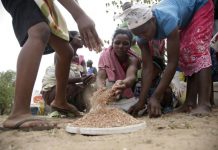THERE is an unprecedented rush for Mopane worms in Solusi and Khami on the outskirts of Bulawayo as high meat prices force consumers to look for alternative sources.
However, the rush is also causing serious environmental damage and over exploitation of the insects, a development which experts believe could lead to either their extinction or a decrease of the delicacy worms in the near future.
Scores of people from Bulawayo and other parts of the country have besieged Solusi and Khami searching for Mopane worms which are locally known as amacimbi or madora in Shona as an alternative relish to meat.
A Forestry Commission official who spoke to NewZimbabwe.com said his organisation was concerned by the indiscriminate harvesting of this food resource.
“This year there has been a tremendous shift from harvesting Mopane worms for subsistence to trading them in both rural and lucrative urban markets,” he said.
“This trend has however created a lot of environmental problems as a lot of people from as far as Harare have set up makeshift amacimbi processing camps in surrounding bushes where there are using firewood to dry the worms. A lot of firewood is needed during the dying process,” he said.
The official said the environmental damage was mainly caused by people from urban areas who are not familiar with natural resources management systems.
“We seem not to have any problems with the local communities who have established intact indigenous natural resource management systems. The main culprits are outsiders who are fuelling environmental damages. In some areas, these people have started veld fires while in other areas they are cutting trees in order to catch the worms,” said the official.
NewZimbabwe.com visited Solusi and Khami areas and saw hundreds of people, mainly women indiscriminately harvesting the amacimbi. Some were selling the insects at the point of harvest.
A 20 litre bucket was selling for US$25 or 375Rands with the price set to go up as demand is increasing and the worms are depleting.
“I have been camping here with my children since last week. Every day we make sure we harvest at three buckets of amacimbi which we prepare for sell. Our customers are coming from as far as Mutare. This is an opportunity to raise schools fees for my children,” a harvester who only identified himself as Peter said.
A lot of people including nurses, teachers and journalists have joined the amacimbi rush.





